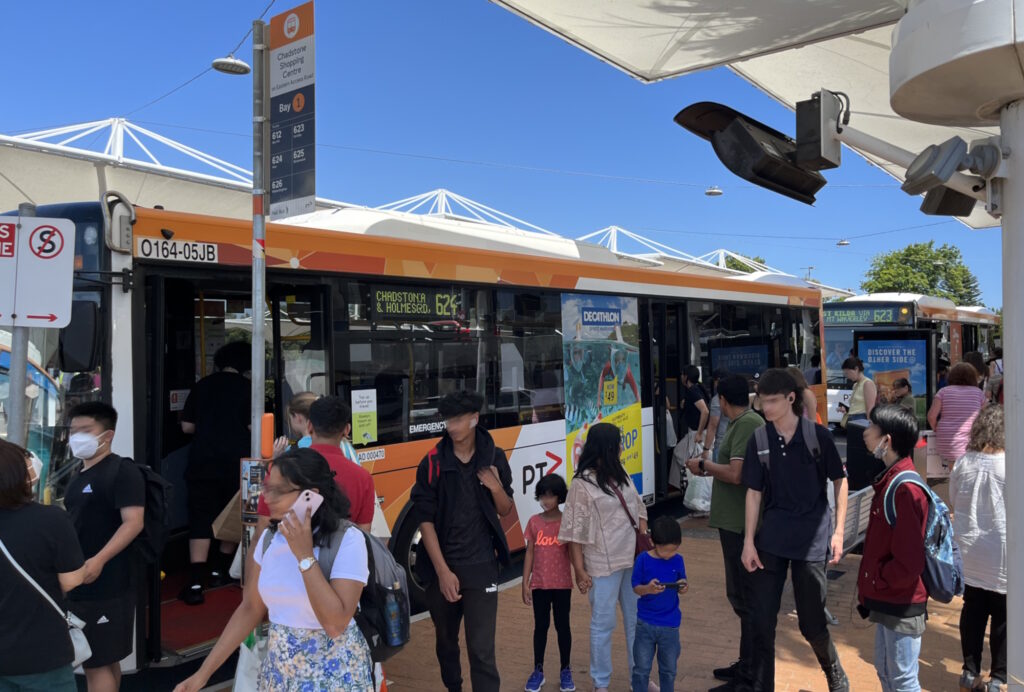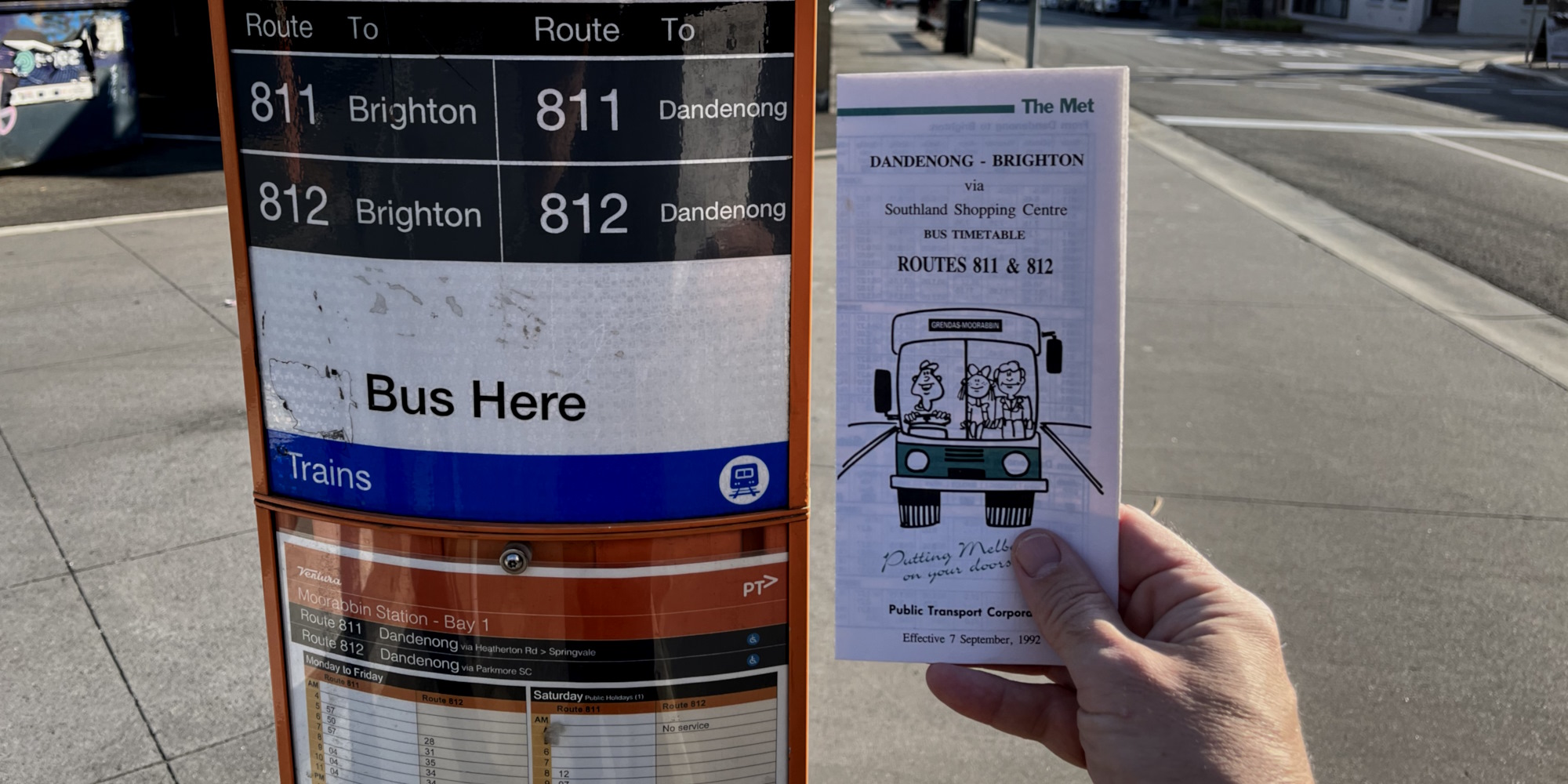The Public Transport Users Association (PTUA) is calling for a forgotten part of Melbourne’s public transport network to be preserved.
“So often when people think of public transport, they only think of infrastructure and vehicles. But timetables are a vital piece of the system – and some of Melbourne’s date back decades”, said a PTUA spokesperson.
“The government seems determined to stick with infrequent timetables outside peak hour, so we believe they should formalise that, and have those schedules heritage listed.”
The PTUA says that much of Melbourne’s bus network structure, and its timetables, are the result of cutbacks in 1991, when public transport use was at historic lows, and a recession-hit Melbourne had only 3 million people.
“Suburban buses running only every 30-60 minutes have been a Melbourne tradition for over 30 years. Waiting an hour for a bus to a busy shopping centre is a ritual with historical, cultural, and social significance, and this needs to be preserved.”

Trains every half-hour in the evenings date back to cutbacks in 1978. Similarly, trams every 20-30 minutes after dark have been an institution since the 1960s, the time of the six o’clock swill [1].
As suburban Melbourne continues to grow and modernise, there’s a pressing need to ensure that historic traditions are preserved for future generations.
Melbourne’s population may have overtaken Sydney’s [2], but with careful preservation, the public transport network can exemplify Ava Gardner’s apocryphal description of 1950s Melbourne as the perfect place to make a film about the end of the world.[3]
To their credit, governments for generations have continued to ensure that most middle and outer suburban public transport is virtually unusable for most trips most of the time, preserving these traditions.
By granting heritage protection to public transport timetables, the traditional experience of a long wait for a train after dark, or missing the last bus home can continue to enrich us for many generations to come.


